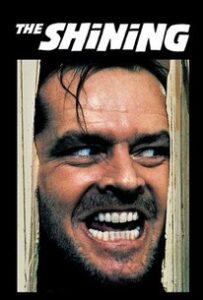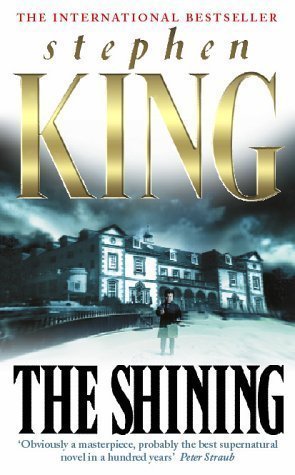It’s no secret that Stephen King isn’t a fan of Stanley Kubrick’s adaptation of his novel, The Shining. King has been critical of the film ever since its release in 1980, and has reiterated that statement as recently as 2021. Despite this, many viewers and filmmakers, including Jordan Peele, director of Get Out, cite it as one of the greatest horror flicks ever conceived. When looking at both the novel and film, it isn’t hard to see why King derided the direction Kubrick took his story in.
In the novel, the members of the Torrance family have a warmth to them, laughing and making jokes with one another, and showering each other with affirmations of love. Kubrick opted for a much colder depiction of the characters, imbuing them with more disquieting personalities that provide the impression that they aren’t that comfortable around one another. Jack Torrance, the patriarch of the family, in particular, feels like a ticking time bomb from the onset of the film before finally exploding into murderous rage towards his wife and child at its climax.
 King himself has noted this difference in tone when discussing the film stating, “In my novel, the hotel burns. In Kubrick’s movie, the hotel freezes,” citing the divergent endings of the book and film. For King, the horror of The Shining stems from the gradual disintegration of a happy family as they’re attacked and influenced by malevolent spirits, while Kubrick’s interpretation posits that the true terror of the story comes from being trapped with a father figure seeking an excuse to harm his family.
King himself has noted this difference in tone when discussing the film stating, “In my novel, the hotel burns. In Kubrick’s movie, the hotel freezes,” citing the divergent endings of the book and film. For King, the horror of The Shining stems from the gradual disintegration of a happy family as they’re attacked and influenced by malevolent spirits, while Kubrick’s interpretation posits that the true terror of the story comes from being trapped with a father figure seeking an excuse to harm his family.
So, is one take on the story inherently better than the other? I was certainly of the opinion that Kubrick’s stab at the material was the superior take, likely owing to the fact that it was the first version I was exposed to. When I went to read the book, I was disappointed and taken aback: Why was this family so damn happy? Why is Jack explicitly possessed by a ghost to kill his family? Am I really supposed to think that animated hedge carvings of animals are scary? These were the thoughts that raced through my head as I made my way through the novel, and I ended up pawning off my copy to Half-Priced Books out of frustration once I’d finished.
Recently, I decided to reread The Shining, attempting to assess it on its own merits, and I found myself surprised. I still didn’t find the book all that scary, owing largely to its more campy tone that is a staple of Stephen King’s style, but I found myself more invested in its characters due to how likable they were, and it was heartbreaking to see Jack Torrance, once a loving father and husband, be manipulated by evil spirits to murder those he loves most.
After finishing the book, I revisited the movie, and while it still succeeded in being just as haunting as the first time I watched it, it felt like something was missing. The horror of being trapped with an abusive patriarch remained, sure, but I found myself only rooting for Wendy and Danny Torrance to escape, not because I particularly liked them, but because I didn’t want to be around Jack anymore.
So again, I ask the question, which version is better? Well, this may feel like a cop-out, but I think that attempting to do so is an exercise in futility. While the premise of both versions is the same, the effectiveness of their approaches will differ from person to person. If someone is seeking a more chilling, psychological, and disquieting story, then the Kubrick version will be for them. But, for those that want a more character-driven and tragic tale, then the novel will likely do more for them.
I’m personally glad that both versions of The Shining exist, and I think that attempting to prop one up over the other ultimately discredits the merits of both, because sometimes, the book isn’t inherently better than the movie, it’s just a little different.
Meet the blogger: ETHAN McCLANAHAN is a Creative Writing major at Hamline University. When he isn’t agonizing over the third draft of a short story, you can find him jamming with his bandmates around the Twin Cities, and catching shows at the Trylon Cinema.
ETHAN McCLANAHAN is a Creative Writing major at Hamline University. When he isn’t agonizing over the third draft of a short story, you can find him jamming with his bandmates around the Twin Cities, and catching shows at the Trylon Cinema.


